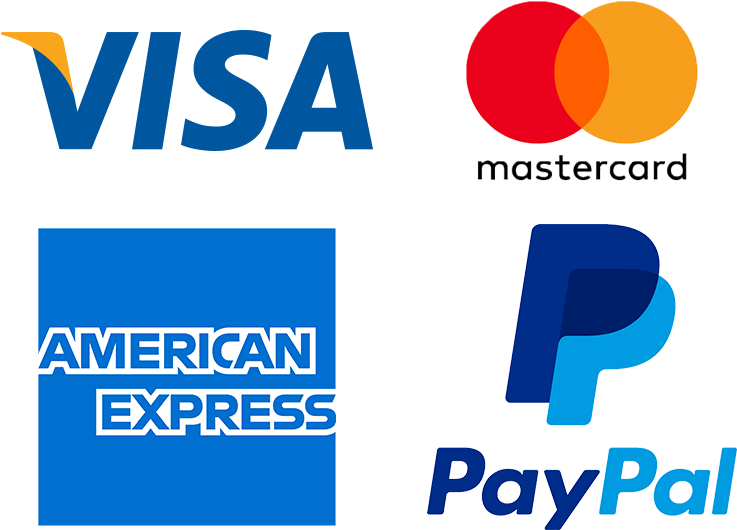ARAMCO Versas SABIC
Aramco is a wholly government-owned organization in the Kingdom of Saudi Arabia. The company was established in 1933 and currently acts as the primary source of revenue in the country. In addition, Aramco company deals with exploring, processing, refining, and distributing gas and petroleum products. Saudi Aramco company supplies its oil products within the country and across the world. Furthermore, the company is the world’s largest petroleum industry satisfying 10% of petroleum users in the globe. The company has employed more than 45,000 laborers improving the country’s sustainability through youth employment.
To sustain its production process, the company has established many power plants that keep the oil extraction and processing fast. Additionally, Aramco has established pipeline systems as the primary source of oil transportation to decrease transportation costs. Currently, the company can produce up to 9 million barrels daily. The company’s products include diesel, crude oil, gasoline, LPG, butane, and propane.
SABIC
SABIC company was founded by royal decree, just like Aramco oil company. The company was established in 1976 to use oil byproducts to manufacture polymers, fertilizers, and chemicals. The company is also a multinational company distributing its products in over 50 countries. SABIC’s headquarter is in Riyadh, the capital city and the most populated city in Saudi Arabia. In addition, the company has four divisions, namely specialist, minerals, agricultural fertilizers, and petrochemicals.
The relationship between SABIC and Aramco company is the joint manufacture of petrochemicals and the fact that Aramco has a 70% share in the industry. In addition, the company has employed over 30,000 crew and assets of up to 290 billion SAR. In the petrochemical industry, the company is ranked fourth globally in sales volume. Considering the size in Saudi Arabia and the Middle East, SABIC is ranked second among public companies.
SCM management issues
Supply chain management involves managing data, finances, and distribution of products, from securing the resources to distributing the final product in the market. Some principles that govern SCM include improving inventory visibility, diversifying supplies, creating new distribution channels, improving data analysis, ensuring faster adaptability, and maintaining a stable demand and supply.
Issues in SABIC
SABIC company utilizes the world’s supply chain making it have many suppliers around the globe. In addition, the company has initiated supplier lifecycle management (SLM), a supplier portal. The supplier portal is used as a registration platform by members that wish to supply or partner with the company. Moreover, the suppliers can use the portal to make an order, pay, and oversee the distribution process to their location. In addition, the portal allows distributors to see the forecast, purchase policy, inventory, feedback, bids, code of conduct, and all other relevant information. However, the company needs help with time management since the process involves many steps.
In addition, the purchase of the company’s products has been affected by the dangerous nature of the chemicals. The countries have set high-security measures to observe the products imported and used. Furthermore, the sales are low in such countries because they have set a limit on the amount imported. In return, the restrictions have caused a rise in pricing due to the high taxation on chemical products. On the logistics, SABIC is highly vulnerable to the dangers of an explosion that might lead to chemical exposure in the environment. However, the company has set up security measures to reduce the chances of such dangers by partnering with some safety systems. The systems include the Chemical Road Transport Safety System, Chemical Distribution Institute, and Safety and Quality Assessment for Sustainability. Therefore, the cost rises for many logistical partners who find it hard to deliver the company’s products due to its safety measures.
Similarly, the information system relies entirely on the IT system, making it highly vulnerable. The dangers are mainly caused by system shutdowns, software crashes, and cyber-attacks which lead to information loss or leaks. In cases of information leaks, the relationship between the company and its suppliers is weakened, lowering sales. Additionally, the company has a sound system of quality surveillance to ensure customer satisfaction. However, slight contamination will interrupt the quality due to the delicate nature of chemicals. In such instances, the quality assurance authorities significantly fined the company and might be temporarily banned as investigations commence.
Many of the company’s plants have the challenge of frequent bottlenecks causing manufacturing delays. In return, products take long to reach the consumer, affecting customer loyalty. In addition, SABIC customers need help with things like wrong quantity, lost orders, and contaminated products.
Issues in Aramco
Just as SABIC, Aramco supplies its products across the globe. The company also has a supplier portal known as Supplier Network Collaboration. The portal allows the suppliers to access agreements, terms and conditions, inventory tracing, POs, analysis, and approved suppliers. The portal ensures that the company and its suppliers control the distribution of products, finance, and analytical data. However, Aramco suppliers do not need to register to be allowed access. Furthermore, the Kingdom of Saudi Arabia requires all international companies to establish iktva to increase their procurement. Therefore, the suppliers with minimum requirements of the iktva procurement needs cannot secure contracts in the company.
Another challenge to suppliers is the delays in payment. The reason for payment delays is that Aramco only uses SAR, Euro, Japanese Yen and UDS to issue payments. Therefore, suppliers that use local currencies have a major problem in processing their payments to their respective currencies. Since the company established iktva, its sales have gone up due to international companies depending on the company increasing. However, the purchasing cycle is affected with the long procedure involved. The long procedures are established to make sure iktva is used appropriately. Aramco uses four logistical methods when dealing with its suppliers. However, suppliers have issues finding a suitable candidate to represent the company. A Saudi citizen can only submit logistical issues, hence, the challenge. Furthermore, the company has fifteen ships that are used to transport crude oil across the red sea. In addition, the company established the world’s longest Trans-Arabian pipeline transport system. The pipeline was 1,212 km long and went all through the Arabian gulf. Aramco established the piping system to minimize the cost of transportation via land. In addition, the use of tracks was risky due to terrorist attacks and the explosion of the fuel. Therefore, the pipeline system was fast and efficient because the pipes were installed underground.
Additionally, the company had a logistics team that controlled the distribution, negotiated contracts, and operated cargo terminals. However, the company has issues regarding transport, where they are forced to use the Suez Canal. The issues arise from the political wrangles in Iran and the fight between Yemen and Somali pirates. The use of the Suez Canal is a disadvantage to the company, for it is long and consumes much time. Since the company uses the SNC system to communicate with suppliers, it faces data leaks due to cyber attacks or human errors. Therefore, both the suppliers and the company are vulnerable to threats issued by cybercriminals. In addition, the company has a history of system shutdowns due to a virus installed in the PCs known as the Shamoon virus. As a result, 30,000 workstations had to stop production for one week as repair commenced.
Aramco company does a great job of maintaining product quality. The company employees are responsible for filing a complaint when they receive poor-quality resources. Even though the government has its own quality organization to examine suppliers, the company uses the employees to limit the number of qualified suppliers. The reason that the government fully owns Aramco is affected by politics. Therefore, its customers must have a good political relationship with the country to partner with Aramco company as supplier. As a result, some customers are forced to look for other conventional fuel companies. However, the consumers of Aramco products are advantaged to get quality and cheap oil products.
Impacts of information technology on SCM
Technology is the major cause of the two companies’ fast, reliable, cheap, surplus, and quality production. Due to technology, both companies can easily differentiate the company production systems. Therefore, the time used to produce and supply is short as roles are assigned to different individuals with certain technological expertise. In addition, the use of SLM in SABIC and SNC in Aramco has enabled the two companies to easily track, make payments, control shipments, and receive orders from other suppliers. Therefore, the systems have ensured that goods reach their destination safely and in time.
In addition, the use of pipe technology has assisted Aramco company to safely transport its oil products within the gulf region. Furthermore, the piping system has reduced the cost of production since it uses shortcuts hence, shortening the distance. Moreover, the SNC communication technology has enabled Aramco to maximize production and reduce the cost incurred in production due to accurate data prediction reducing waste.
Similarly, the use of information technology (IT) has come in aid of providing accurate statistics that enable SABIC produce timely and quality products. Therefore, both companies have benefitted in satisfying their consumers by maintaining consistency in production and supply. Furthermore, both companies have several plants that help to produce surplus products in the market. Therefore, the company uses PCs to monitor the production of all plants and combine the results under one file. The advantage of combining data of all plants is enabling the company to evaluate their efficiency in production.
Furthermore, both companies have installed CCTV cameras to monitor the workers’ performance and maintain security. The cameras have enabled the companies to minimize laxity in production since the employees are aware of the surveillance systems. Therefore, the production process is smooth and has massive results in increasing product supply. Another importance of technology is ensuring that companies get real-time data anytime they need access. In addition, the managers are able to communicate orders to employees through the installed speakers without having to go down to the plants. Therefore, managers save time of movement from one plant to the other.
Due to the distance, the companies can easily issue or receive payments from the company’s suppliers. Therefore, the number of suppliers and customers has increased for companies allowing the online transaction. After the transactions, the companies install microchips in the products to enable them and the suppliers to track the distribution process till the consumer receives the product. In addition, before the use of technology to analyze data, both companies used a lot of time in decision-making. However, after the companies initiated modern data technology, decision-making is fast because the computers do the calculations and provide accurate statistics within seconds.
Recommendations
Although the two companies are doing great in terms of production and sales, they need to make improvements to increase sustainability. For Aramco, it needs to diversify its currency such as SABIC company. This will help increase the number of sales by inviting suppliers who use local currencies. Furthermore, the company should set political boundaries so that it will not affect Aramco company’s consumers from countries with political issues with Saudi Arabia. In addition, SABIC company needs to implement the use of iktva such as Aramco. Using iktva will enable SABIC to sign contracts with qualified suppliers, increasing customer experience and loyalty through satisfaction.
Additionally, SABIC should eliminate third parties in the distribution of its products. Third parties delay the distribution process and require payment of their services causing an increase in the price of the products. Therefore, it will be advisable for the company to distribute the products independently. Finally, the companies should train logistics representatives to represent logistical data to the suppliers properly. In addition, both companies should update their security measures and train employees to prevent human error and cyber-attacks.

